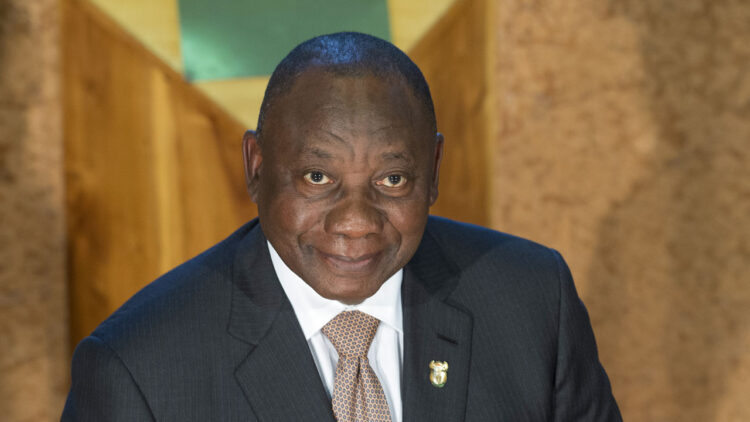By Martin Cole-
South Africa has agreed to ease its lockdown on June 1 after pressure from opposition leaders and legal challenges by University students. most industrialised economy has been largely shut down since late March when the government enforced severe restrictions.
President Cyril Ramaphosa announced on Sunday that South Africa’s coronavirus lockdown will be eased from June 1, allowing the vast majority of the economy to return to full capacity.
The decision to ease the lockdown came after a series of legal challenges against the lockdown. Liberty Fighters Network (LFN) and its president Reyno de Beer lodged urgent challenges in the Gauteng High Court in Pretoria last Wednesday, whilst the LFN, which identifies itself as a renegade social justice organisation, is challenging the legitimacy of all the lockdown regulations .
Prior to that, the Democratic Alliance opposition party issued a separate court challenge to test the constitutionality of the Disaster Management Act.
They claimed the regulations have violated almost all clauses in the Bill of Rights of most of our citizens, and that Dlamini-Zuma has especially ”humiliated and trampled upon the dignity of the vulnerable citizens and guests of South Africa.”
They accused the government of several missteps including night time curfew, being policed and enforced by the military; The ban on e-commerce, simply on the grounds of “fairness”; and The limitations on exercise and movement.
South Africa has been under lockdown since late March when the government enforced severe restrictions to stem the spread of the novel coronavirus which has so far infected 22,583 people and killed 429 has had a devastating effect on people’s livelihoods.
Ramaphosa, who has been under pressure to ease the restrictions, said on Sunday that following broad consultations the cabinet had decided to move the country to “level three” of its five-level lockdown system.
“This will result in the opening up of the economy and the removal of a number of restrictions on the movement of people while significantly expanding… our public health interventions,” he said in a televised address.
Under level three, Ramaphosa said that aside from a few exceptions where the risk of transmission is high, the economy could return to full capacity. A curfew and restriction on outdoor exercise would be lifted and alcohol could be sold for home consumption.
He warned though that this would result in a spike in the number of cases, which he said had only been delayed by the measures taken so far and given the country a chance to build up its public health capacity.
Any part of the country, such as coronavirus hotspots like the major cities of Johannesburg and Cape Town, could be returned to a stricter lockdown if the rise in cases and the impact on the health system became too severe, he added.
Five Tier System
South Africa moved into level three of a five-tier system, allowing reopening of economy under ‘strict health protocols’..
Ramaphosa said in a televised address on Sunday the cabinet has decided to move the country to “level three” of its five-level approach to easing the coronavirus lockdown from June 1.
“This will result in the opening up of the economy and the removal of a number of restrictions on the movement of people while significantly expanding … our public health interventions,” said the president, who has been under pressure from rival political parties and a variety of industries to relax the curbs.
Africa’s most industrialised economy has been largely shut down since late March when the government enforced some of the world’s strictest restrictions in an attempt to try and stem the spread of the coronavirus which has so far infected 22,583 people and killed 429 in the country.
Ramaphosa initially enjoyed broad support for the lockdown, which confined most people to their homes aside from essential trips. But that has since given way to concerns about the measures’ effect on an already shrinking economy and on a mostly poor population.
The easing of the lockdown next week will include the lifting of a controversial ban on the sale of alcohol for home consumption. The measure was meant to prevent a spike in domestic violence and reduce pressure on emergency wards.
“Alcohol will be sold for home consumption only under strict conditions on specified days and for limited hours,” Ramaphosa said, adding, however, that the sale of tobacco products would remain prohibited “due to the health risks associated with smoking”.
Under level three, the night-time curfew will also be lifted and outdoor exercise allowed at any time during the day.
However public gatherings will remain prohibited and certain “high-risk economic activities” such as restaurants, bars and hairdressing salons will stay closed for the time being.




